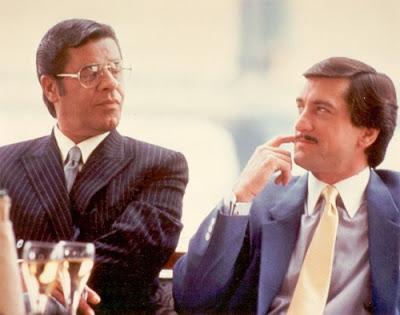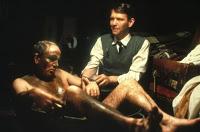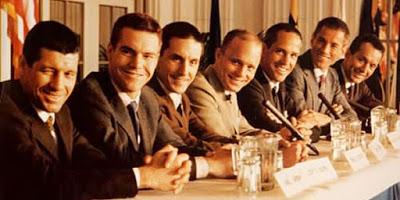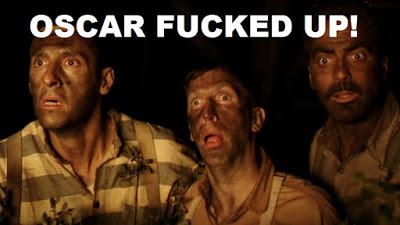Peter Yates: The Dresser
Ingmar Bergman: Fanny and Alexander
Mike Nichols: Silkwood
Bruce Beresford: Tender Mercies
James L. Brooks: Terms of Endearment (winner)
What’s Missing

Looking at the nominations for Best Director 1983, I almost want to scratch the entire list and start over. There’s some truth to the thought that much that I would prefer to nominate are films and directorial performances that don’t get a lot of love come Oscar-time. This starts with David Cronenberg and Videodrome and continues to Tony Scott’s classiest (and sexiest) film, The Hunger and Terry Jones’s work on Monty Python’s the Meaning of Life. A long shot, but one worth mentioning, is Bob Clark and A Christmas Story, my favorite holiday movie not called Die Hard. Zelig seems oddly overlooked, as does Woody Allen. The three directors I’d absolutely want to see on this list are Gregory Nava for his work on El Norte, Martin Scorsese for The King of Comedy, and the tragically unnominated Philip Kaufman for The Right Stuff.
Weeding through the Nominees

5. Of the nominated movies, The Dresser is far from my least favorite, but I’m putting Peter Yates in the bottom position. The film is a fine one and absolutely dominated by the twin performances of Albert Finney and Tom Courtenay, and Yates gets some of the credit there. But it’s a very small film, a performance piece more than anything else, and it’s also a stage play turned into a movie only by virtue of being filmed. It looks like a filmed stage performance, and while that can be effective, I find it difficult to think that it deserves being nominated. Cinema can do so much more, and it should.

4. I really didn’t like Terms of Endearment, which I called a good movie that wasn’t made for me in my review of it. There are a lot of things (the characters, the soundtrack) that infuriate me and make me never want to see it again. But it is well-made and I won’t take that away from it. So why is it in fourth place? Because I honestly can’t figure out what James L. Brooks actually did to earn a nomination. I genuinely don’t see anything in the direction here that is anything more than just bog-standard direction. Maybe I’m wrong, and that’s what the comments are for.

3. I’ve enjoyed a lot of Mike Nichols’s work, but it’s hard to say that I enjoyed Silkwood because it’s not an enjoyable movie. My biggest problem with it is that it comes off as manipulative when it doesn’t really need to be. There’s a sense of doom hanging over the entire movie from the start, which means that there isn’t a lot of surprise where it’s going to go and no surprises when it gets there. There’s a fine line between creating an atmosphere of slow-building dread and tipping the hand completely. Nichols crossed that line here.

2. I’m a little torn on where to go with the last two entries here, but I’m ultimately putting Bruce Beresford and Tender Mercies in second. This is the first of the five nominations I’d actually keep in an open field, and it’s specifically for how Beresford uses his camera. Where many directors would cut away, Beresford lingers, giving us an extra heartbeat or two on a character and allowing us to really absorb the reaction to what is happening. It humanizes the conflict and the characters and makes the whole thing work. I’m happy he was recognized with a nomination.

1. Fanny and Alexander is not my favorite of these five movies, and while my heart may fall to Bruce Beresford, my head says that Ingmar Bergman should have won this Oscar. I’m not a fan of the idea of winning a lifetime achievement award in a competitive category, but Bergman’s work here is excellent and the man deserved a statue. But, as often happens in categories like this one that seem to have been nominated by people who didn’t actually see any movies, Bergman’s win only works for me in the context of the five nominations. In my own world, I get to nominate whomever I’d like.
My Choice

I’m handing this Oscar to Philip Kaufman for The Right Stuff. The movie tells a great and important story and I love it for that. I love it for it being about the early days of NASA and a depiction of just how ballsy these people truly were. But the real reason I would give Kaufman the statue is that I knew much of this story going in. I knew the basic history of the Mercury program, and I was still interested in the characters, everything that happened, and the outcomes. That Kaufman got such good performances out of such a large and varied cast only adds to my opinion that he should have been nominated and should have won.
Final Analysis

